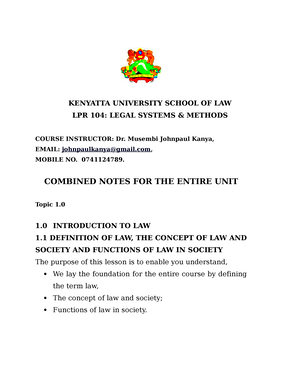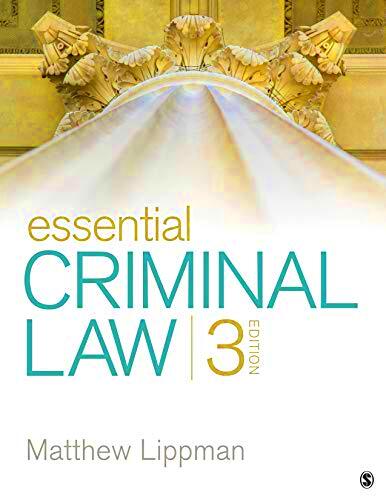Essential Louisiana Criminal Law
Louisiana’s criminal law is unique, shaped by its rich history and cultural influences. The state operates under a civil law system, which differs from the common law systems used in most of the United States. This makes Louisiana’s legal landscape distinctive. Understanding the basics of criminal law in this state is crucial for anyone navigating the legal system, whether as a defendant, victim, or interested observer.
Understanding the Criminal Justice System in Louisiana

The criminal justice system in Louisiana involves several key components that work together to maintain law and order. Here’s a brief overview:
- Law Enforcement: Police officers investigate crimes and gather evidence.
- Prosecution: District attorneys file charges and represent the state in court.
- Defense: Criminal defense attorneys advocate for the accused.
- Court System: Courts handle trials and appeals, ensuring justice is served.
- Corrections: Prisons and rehabilitation programs aim to reintegrate offenders into society.
Each part plays a vital role in ensuring that justice is achieved. The process can be complex, with various stages, including arrest, arraignment, trial, and sentencing. Understanding how these elements interact is essential for anyone involved in a criminal case.
Types of Crimes in Louisiana

In Louisiana, crimes are generally categorized into two main types: felonies and misdemeanors. Here’s a closer look at each category:
| Type of Crime | Examples | Punishments |
|---|---|---|
| Felonies | Murder, robbery, drug trafficking | Imprisonment for more than one year, heavy fines |
| Misdemeanors | Theft, simple assault, public intoxication | Imprisonment for less than one year, smaller fines |
Understanding the types of crimes can help individuals comprehend the potential consequences they may face if charged. It’s important to remember that not all crimes are equal, and the severity of the offense often dictates the punishment.
Punishments and Sentencing in Louisiana

Punishments and sentencing in Louisiana can vary widely based on the type of crime committed. The law aims to balance justice for victims with rehabilitation for offenders. Sentencing guidelines help judges decide appropriate penalties. In some cases, judges have discretion, while in others, mandatory minimum sentences apply.
Here are some common types of punishments in Louisiana:
- Imprisonment: Offenders may serve time in parish jail or state prison.
- Fines: Courts often impose monetary penalties in addition to or instead of jail time.
- Probation: Instead of serving time, offenders might be placed on probation, requiring them to meet specific conditions.
- Restitution: Offenders may be ordered to pay victims for damages or losses incurred.
Louisiana also has a system of parole, allowing inmates to serve part of their sentence in the community under supervision. Understanding the possible outcomes can help individuals prepare for their cases and seek the best possible resolution.
Defenses Against Criminal Charges
When facing criminal charges in Louisiana, having a solid defense can make a huge difference. Various defenses can be raised, depending on the specifics of the case. Here are some common defenses used:
- Alibi: Proving you were elsewhere when the crime occurred.
- Self-Defense: Arguing that you acted to protect yourself from harm.
- Lack of Intent: Demonstrating that you did not intend to commit the crime.
- Insanity Defense: Claiming that you were not mentally competent to understand your actions.
- Constitutional Violations: Arguing that your rights were violated during arrest or interrogation.
Each defense has its nuances and requires thorough investigation and evidence to support it. A well-prepared defense can significantly impact the outcome of a case.
The Role of a Criminal Defense Attorney
A criminal defense attorney plays a crucial role in navigating the complexities of the legal system. They are your advocate, working diligently to protect your rights and build a strong case on your behalf. Here’s what a defense attorney typically does:
- Case Evaluation: They review the details of your case, including evidence and witness statements.
- Legal Advice: Offering guidance on the best course of action and possible defenses.
- Negotiation: They negotiate plea deals with prosecutors, aiming for reduced charges or sentences.
- Representation in Court: Defending you during trial, presenting evidence, and cross-examining witnesses.
- Appeals: If necessary, they can assist with filing appeals if a conviction occurs.
Having a skilled criminal defense attorney can make a significant difference in the outcome of your case. They understand the legal system and can advocate effectively for your rights.
Navigating the Court Process in Louisiana
Navigating the court process in Louisiana can be a daunting experience, especially if you’re unfamiliar with how the legal system works. Understanding each step can help ease some of the stress. Here’s a breakdown of the typical court process for criminal cases:
- Arrest: It all starts when law enforcement arrests an individual suspected of committing a crime.
- Initial Appearance: Within 48 hours, the accused appears before a judge to hear the charges and potential bail.
- Preliminary Hearing: A hearing may occur to determine if there’s enough evidence to proceed to trial.
- Indictment: If the evidence is sufficient, a grand jury may issue an indictment.
- Arraignment: The accused formally enters a plea—guilty, not guilty, or no contest.
- Trial: If the case goes to trial, both sides present evidence and arguments. A jury or judge will then decide the outcome.
- Sentencing: If found guilty, a sentencing hearing will determine the penalties.
Throughout this process, having a knowledgeable attorney by your side can be invaluable. They can help explain each step, provide legal advice, and ensure that your rights are protected.
Frequently Asked Questions
Here are some common questions people have about criminal law in Louisiana:
- What should I do if I’m arrested? Remain calm, do not resist arrest, and exercise your right to remain silent until you have an attorney.
- Can I represent myself in court? While it’s possible, it’s not advisable due to the complexities of the law. A qualified attorney can significantly improve your chances of a favorable outcome.
- What are my rights during the arrest process? You have the right to remain silent, the right to an attorney, and the right to know the charges against you.
- How can I find a good criminal defense attorney? Look for attorneys with experience in criminal law, positive reviews, and a track record of success in similar cases.
Understanding these questions can help demystify the legal process and empower you to make informed decisions.
Conclusion
Navigating the criminal law system in Louisiana can be challenging, but understanding the key components can make a significant difference. From knowing the types of crimes to being aware of your rights and the court process, each piece of information is essential for anyone involved in a criminal case. Whether you’re facing charges or just seeking knowledge, remember that having a skilled criminal defense attorney can guide you through this complex journey. They’ll work to protect your rights, provide legal counsel, and advocate for the best possible outcome. Stay informed and proactive, and you can better navigate the intricacies of Louisiana criminal law.


